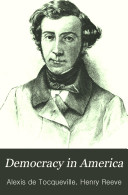Chinese Cultural Innovations Turned to Ritual
When Europeans first arrived in China, three hundred years a^ago, they found that almost all the arts had reached a certain degree of perfection there, and they were surprised that a people which had attained this point should not have gone beyond it. At a later period they discovered traces of some higher branches of science that h had been lost. The nation was absorbed in productive industry; the greater part of its scientific processes had been preserved, but science itself no longer existed there. This served to explain the strange immobility in which they found the minds of this people. The Chinese, in following the track of their forefathers, had forgotten the reasons by which the latter had been guided. They still used the formula without asking for its meaning; they retained the instrument, but they no longer possessed the art of altering or renewing it. The Chinese, then, had lost the power of change; for them improvement was impossible. They were compelled at all times and in all points to imitate their predecessors lest they should stray into utter darkness by deviating for an instant from the path already laid down for them. The source of human knowledge was all but dry; and though the stream still ran on. it could neither swell its waters nor alter its course.
Notes:
An account of the amazing art and inventions found in China, but how these had turned into unquestioned rituals--performed exactly over and over again through the ages without alteration or innovation. The culture had stagnated.
Folksonomies: culture innovation ritual
Taxonomies:
/health and fitness/disease/arthritis (0.576047)
/science (0.572062)
/automotive and vehicles/cars/car culture (0.527075)
Keywords:
Chinese Cultural Innovations (0.908381 (positive:0.633681)), unquestioned rituals (0.724272 (neutral:0.000000)), amazing art (0.640356 (positive:0.633681)), utter darkness (0.620278 (negative:-0.795237)), certain degree (0.618894 (positive:0.433890)), productive industry (0.614997 (positive:0.561645)), later period (0.607354 (negative:-0.445012)), higher branches (0.606274 (negative:-0.445012)), strange immobility (0.600075 (negative:-0.709921)), scientific processes (0.598633 (positive:0.376903)), human knowledge (0.574820 (neutral:0.000000)), China (0.362818 (positive:0.633681)), people (0.350968 (negative:-0.709921)), science (0.350071 (negative:-0.445012)), alteration (0.315278 (neutral:0.000000)), forefathers (0.314646 (neutral:0.000000)), Europeans (0.305743 (neutral:0.000000)), inventions (0.296912 (positive:0.633681)), predecessors (0.294170 (negative:-0.795237)), perfection (0.293763 (positive:0.433890)), culture (0.287623 (negative:-0.550200)), traces (0.284176 (negative:-0.445012)), account (0.283304 (positive:0.633681)), minds (0.282597 (negative:-0.709921)), ages (0.282451 (neutral:0.000000)), arts (0.276079 (positive:0.433890)), point (0.275482 (neutral:0.000000)), reasons (0.274666 (negative:-0.323400)), formula (0.274074 (neutral:0.000000)), nation (0.273303 (positive:0.561645))
Entities:
China:Country (0.817248 (negative:-0.145750)), immobility:HealthCondition (0.344183 (negative:-0.709921)), three hundred years:Quantity (0.344183 (neutral:0.000000))
Concepts:
Scientific method (0.972567): dbpedia | freebase
Science (0.970524): dbpedia | freebase | opencyc
Arts (0.802207): dbpedia
China (0.785645): geo | dbpedia | ciaFactbook | freebase
English-language films (0.778614): dbpedia
The Art of War (0.766476): dbpedia | freebase | yago
The arts (0.763463): dbpedia | freebase | opencyc | yago
Invention (0.753961): dbpedia | freebase

Triples
 Science Must Learn from Chinese History
Science Must Learn from Chinese History
Science Cannot have Creeds > Example/Illustration > Chinese Cultural Innovations Turned to RitualThe Chinese were an incredibly advanced civilization, with writing, printing presses, and medicinal knowledge, but their discoveries turned to rituals without understanding or new growth. If science education becomes ritual, through rote memorization, it will suffer the same fate. Science is a process, not a body of knowledge.





